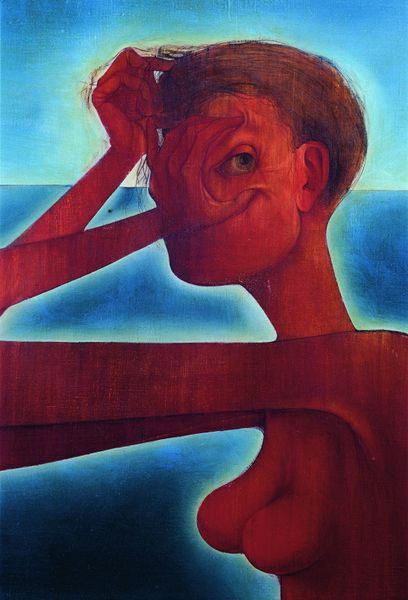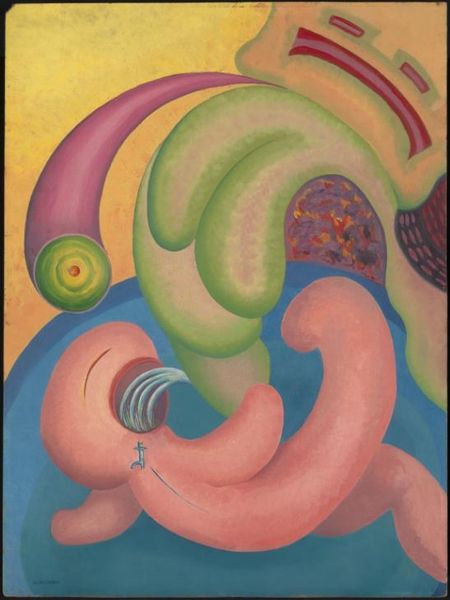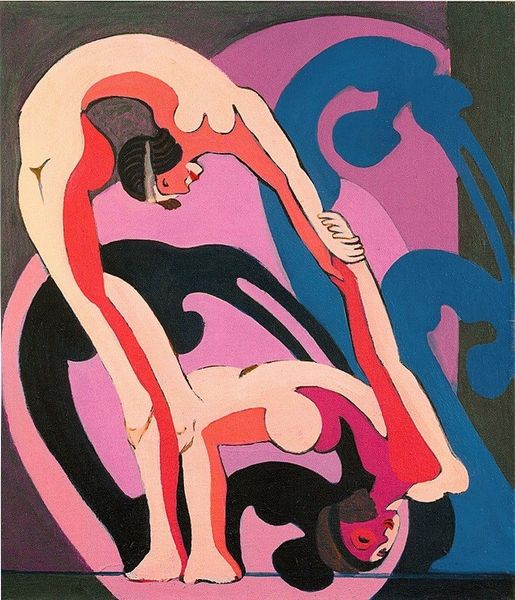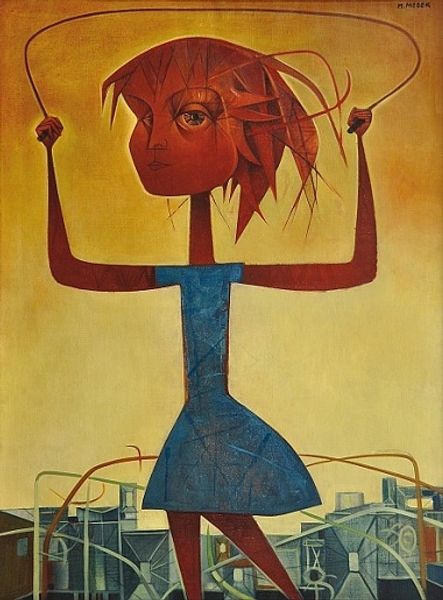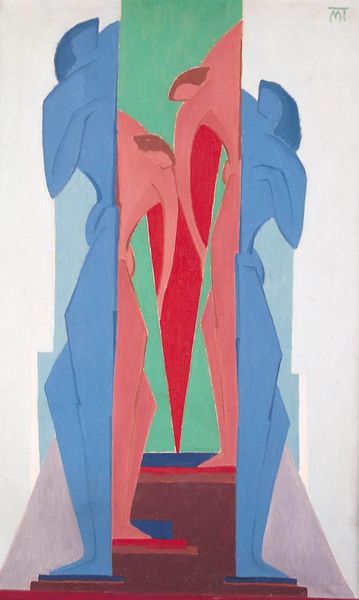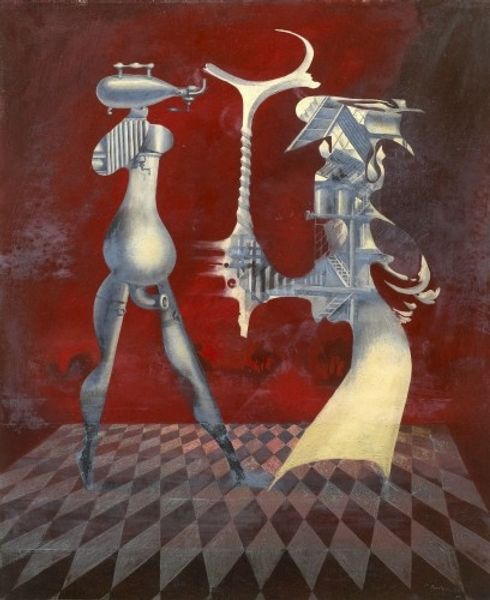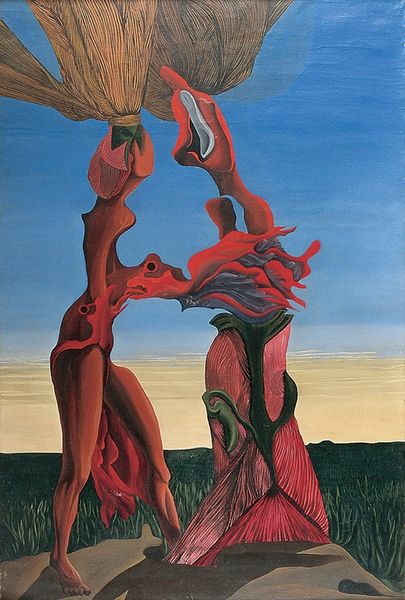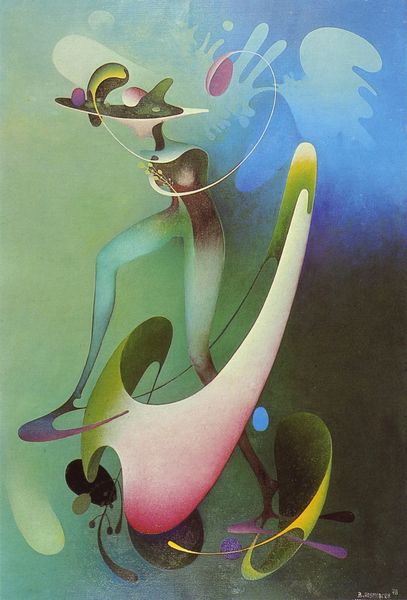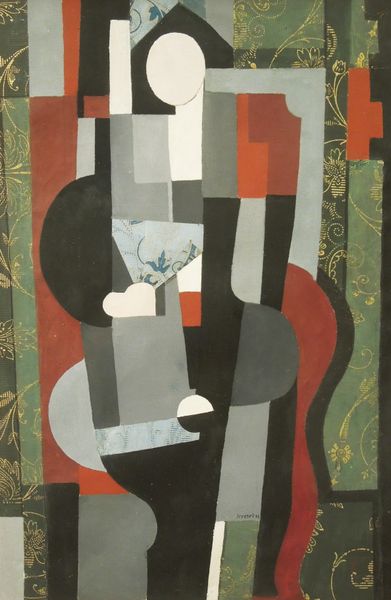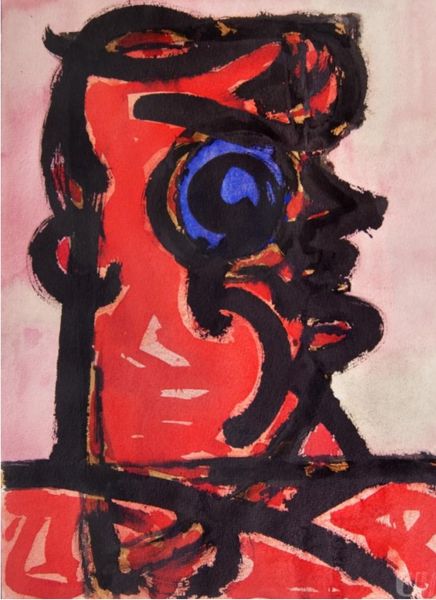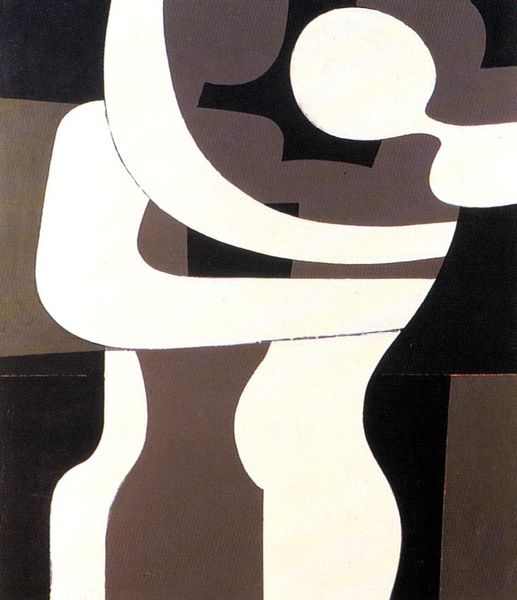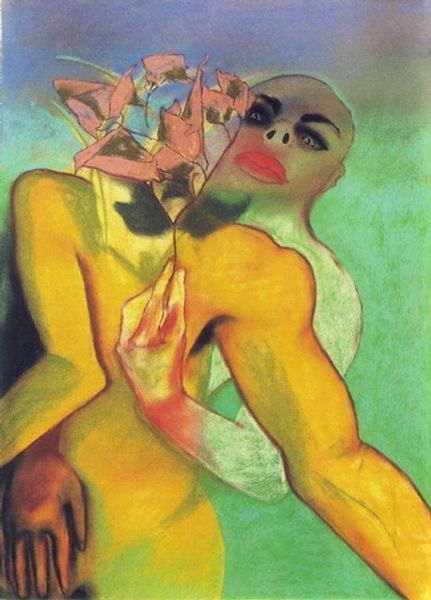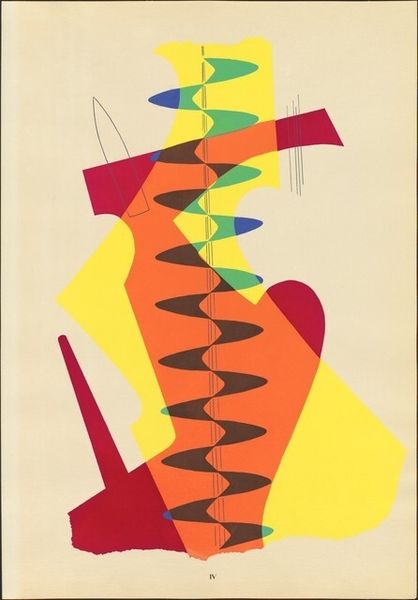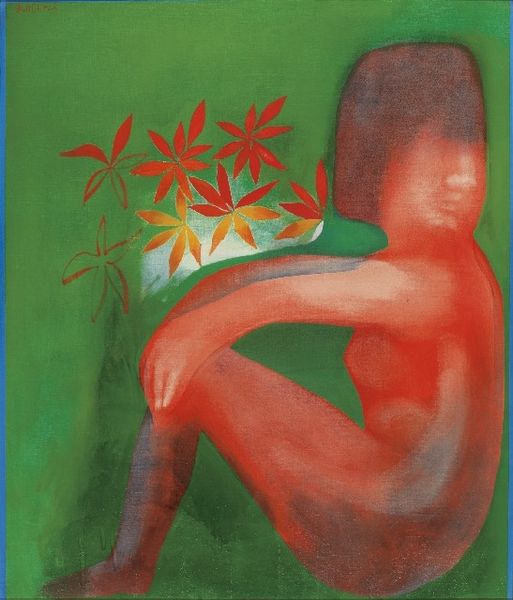
Copyright: Mikuláš Medek,Fair Use
Curator: Mikuláš Medek painted this oil-on-canvas piece, titled "Naked in Thorns", in 1954. What are your immediate thoughts? Editor: Well, it's viscerally unsettling. The muted red of the figure against that sickly yellow-green background creates a real sense of unease, almost like a medical illustration gone wrong. And those stylized thorns—cruel yet somehow artificial. Curator: Precisely. Let's consider the socio-political landscape of 1950s Czechoslovakia under Soviet influence. The artist’s defiance finds an outlet through distorted figuration and raw symbolism. It echoes themes of persecution and forced conformity experienced by individuals living through totalitarianism, doesn't it? Editor: Absolutely, those thorns clearly stand for the barbs of political oppression. Blue thorns though; there is something deeply symbolic here. Is it because blue is associated with melancholia? This piece also speaks to the suffering individual confronting powers. The figure shielding their face conveys fragility but also quiet resolve. Curator: That shield might signify refusal. Remember, surrealism infiltrated Medek’s practice as a means of indirect resistance. The thorns, the posture – all could symbolize imposed restrictions to free thought and self-expression within an oppressive environment. The expressionistic rendering is thus infused with resistance. Editor: The arms raised in both defence and some distorted sort of beckoning…it could signify surrender, yet even this act transforms into one of resistance against absolute domination, or even erasure, under political constraints. I read this as the artist reflecting on their own personal sacrifices made to ensure that the piece and the messages, conveyed throughout, do see the light. Curator: In its own surreal way, "Naked in Thorns" unveils Medek's emotional reaction to constraints while challenging audiences to evaluate systems which lead individuals towards sacrifice. The symbolism and the painting's title provide further avenues for unpacking the cultural environment which enabled creation in a time overshadowed by authority. Editor: Seeing the historical context illuminated allows me to reflect that art has immense power, functioning as a mirror mirroring uncomfortable yet honest realities for individuals, nations or collectives who strive for authenticity and expressivity irrespective of dominant norms in societies. Curator: A potent reminder of how artistic creation can become a poignant vehicle of political and social commentary amidst suffocating historical contexts. Editor: A powerful convergence of form and sociopolitical forces rendering its effect permanent.
Comments
No comments
Be the first to comment and join the conversation on the ultimate creative platform.
